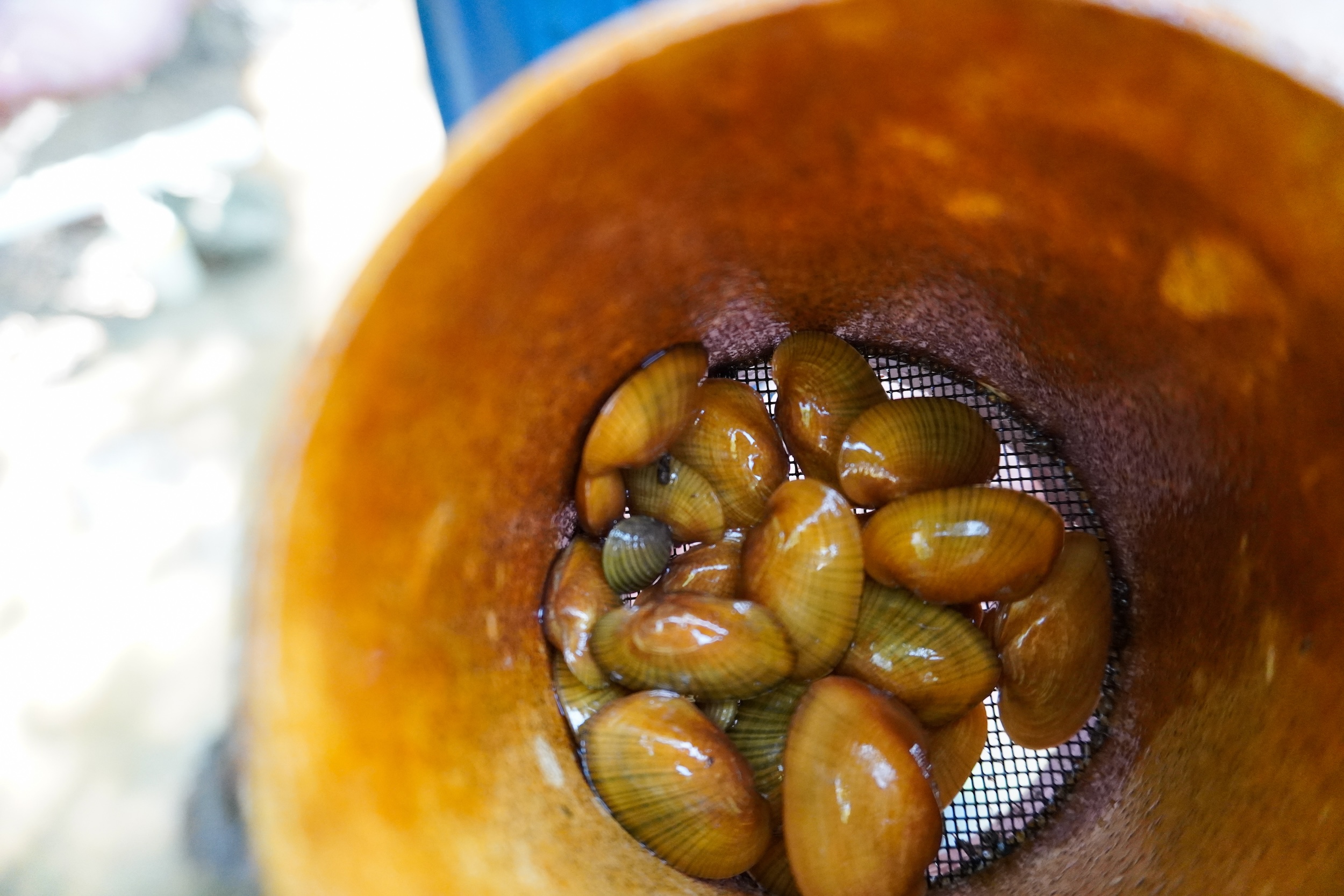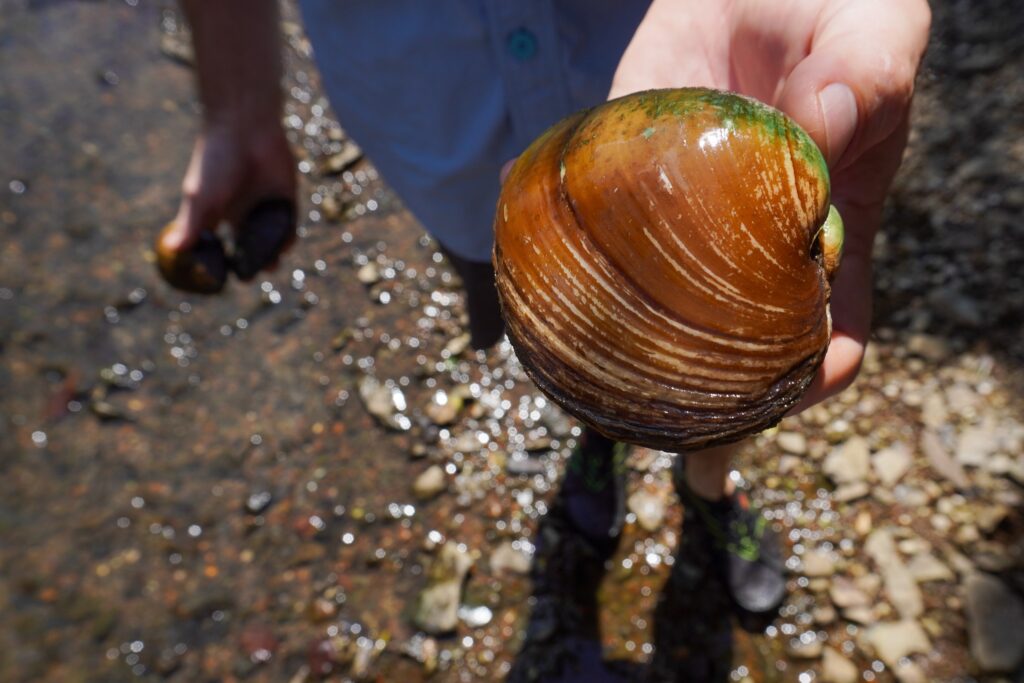Are these mussels healthy?
A tool for determining the health of mussel communities in streams

North America supports the richest freshwater mussel fauna on Earth (over 300 species). As filter feeders, mussels are integral to the healthy functioning of stream ecosystems. However, dams and other human insults to streams have resulted in dramatic declines in mussel populations worldwide, and many species are now critically endangered. With support from the BAND Foundation and the Merck Family Fund, American Rivers and the U.S. Forest Service Southern Research Station are leading a broad collaborative effort to investigate why our mussels are disappearing.

Mommy Mussels and the Breathing Rocks
Freshwater mussels breathe our rivers clean. A new investigation aims to uncover the truth about why mussels are mysteriously dying off — and how to protect these important river creatures.
A first step in evaluating causes of mussel declines is to develop a way to assess the health of mussel communities. As part of our collaborative mussel declines project, the U.S. Forest Service and the University of Kentucky developed the Mussel Assemblage Health Index (MAHI). MAHI uses commonly collected mussel survey data to compute an objective health score for a particular stream, and scores can be compared among streams throughout eastern North America. In addition to helping understand the causes of mussel declines, MAHI will be a valuable tool for early detection of declines and evaluating the effectiveness of conservation strategies and management actions.

To facilitate widespread use of MAHI, American Rivers is proud to make available a tool that allow users to calculate index scores easily using their mussel survey data. Once downloaded, the Excel application works on any system that can open a .xlsx file type. This applications was developed by Traci P. DuBose and Wendell R. Haag, and a full description of MAHI can be found here.


